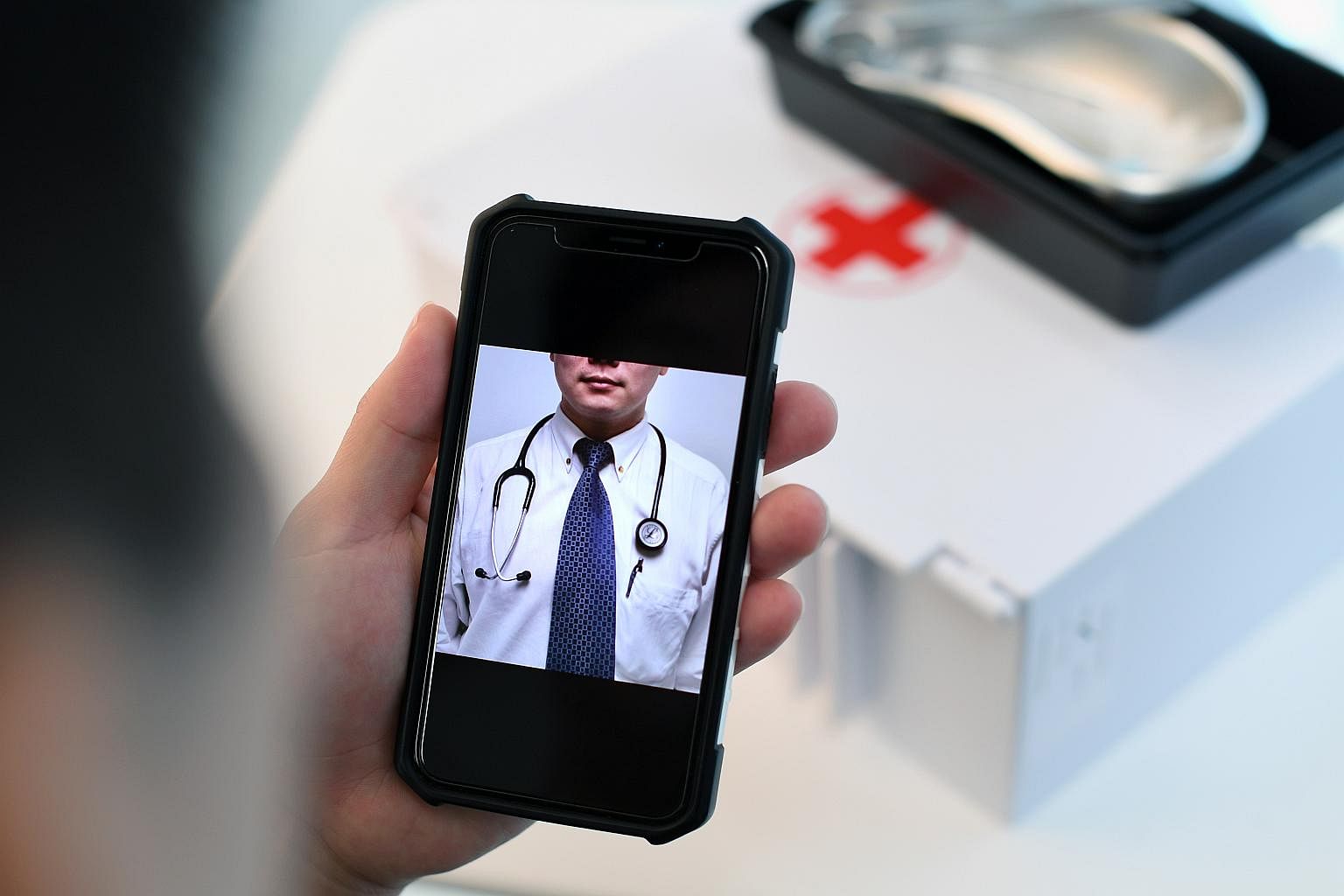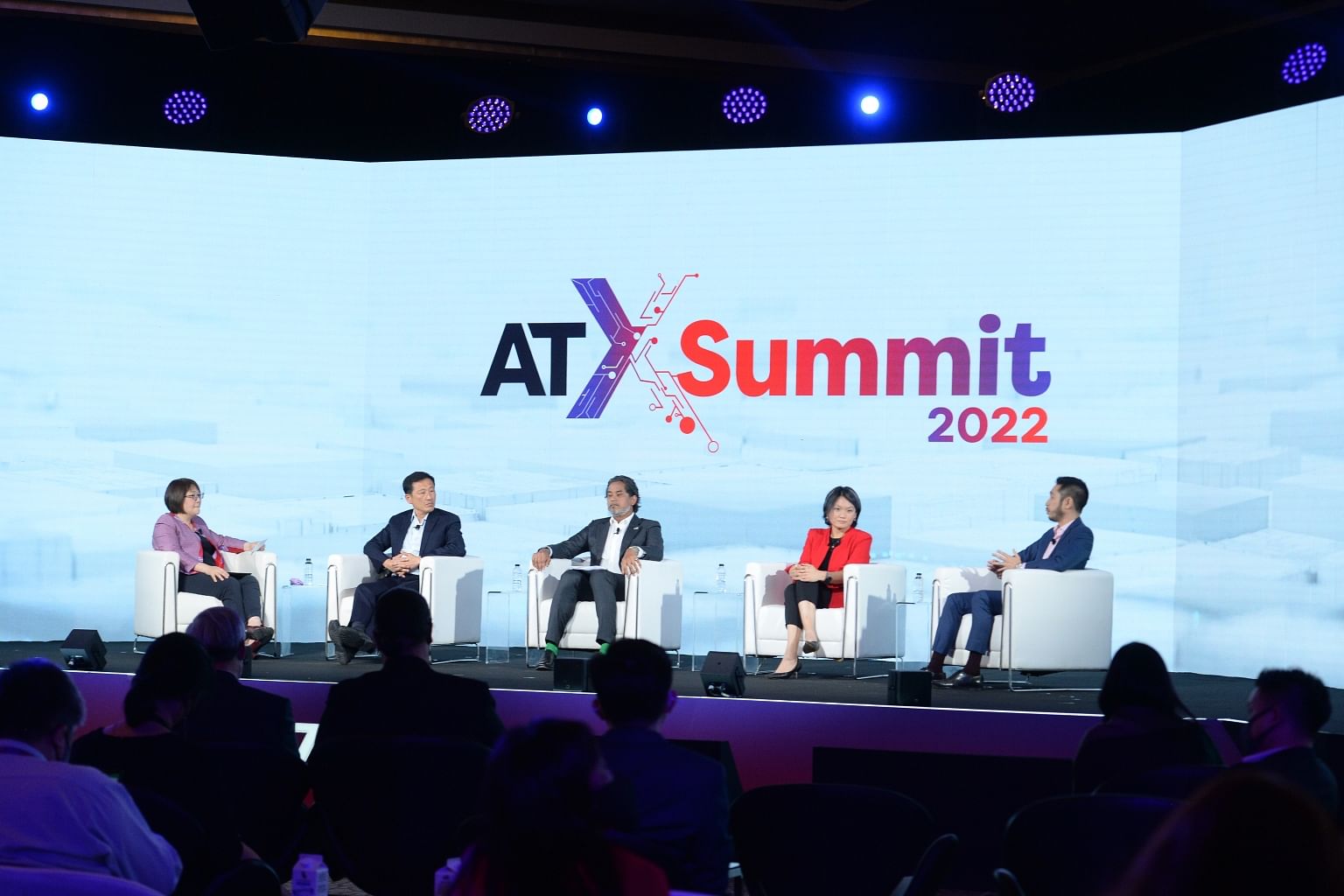Covid-19 enabled changes in healthcare tech, and trust is key in ensuring continued progress: Panel
Sign up now: Get ST's newsletters delivered to your inbox

The panellists said digital solutions will continue to play important roles in societies.
PHOTO: ST FILE
SINGAPORE - The Covid-19 pandemic has been a major enabler of technology in healthcare, and societies should leverage the momentum to continue expanding the sector's use of digital solutions, a panel of experts said on Tuesday (May 31).
They added that trust, among other things, is crucial to keep progressing in this area.
The panel comprised Health Minister Ong Ye Kung, his Malaysian counterpart Khairy Jamaluddin, chief financial officer of Doctor Anywhere Edwin Basuki, and Ms Jessica Tan, co-chief executive of financial services firm Ping An Group from China.
"Many of the things that were hitherto not possible before Covid-19 now can be done, and they can be done because of digital tools," said Mr Ong at this year's Asia Tech x Singapore summit at The Ritz-Carlton, Millenia Singapore.
He cited telemedicine, which he said is now well accepted here, as well as Singapore's database of people who have been vaccinated against and tested for the coronavirus.
Referring to how Malaysia's MySejahtera app has been downloaded about 30 million times, Mr Khairy said: "(We) would never ever have had a population roll-out of an app if it wasn't for Covid-19."
The panellists said such digital solutions will continue to play important roles in societies.
Ms Tan said there is always demand for cheaper and faster healthcare service, as well as more qualified healthcare professionals.
She added that technology can help with these demands, not by replacing doctors, but by improving accessibility of healthcare for many.
For instance, she said, Ping An Group last year launched an online butler service to help care for elderly folk in China who live alone. It reminds them to exercise and look after themselves.
Technology can also support doctors with their work, added Ms Tan.
She said that while there are about 1.4 billion people in China, there are only 3.8 million doctors.
"That's clearly not enough," she added.
So her company has developed an artificial intelligence (AI) system that functions as a mental map of how diseases should be diagnosed.
This clinical support system has improved the accuracy of doctors' diagnoses, she said.
Mr Basuki said his company is thinking of ways technology can be used in secondary and tertiary care, which he hopes people will be more receptive to.
"At the end of the day, healthcare is highly personal to everyone... trust is incredibly important," he said.
He noted that despite being a telemedicine provider, Doctor Anywhere needed to have physical clinics to gain credibility and patients' trust.

Mr Khairy hopes to ensure people's efforts and desire to stay healthy, which gained prominence amid the pandemic, continue beyond it.
He intends to move childhood immunisation records to the MySejahtera app, and allow people to use it to book health screening appointments.
For that to happen, he said, people need to trust it. The government must also ensure the app is interoperable with other systems.
Mr Ong said that the Singapore Government intends to harness digital solutions to enhance its HealthierSG initiative, and ensure any technology used is compatible with other apps and wearables on the market.
HealthierSG is a plan for the reform of Singapore’s healthcare system that will see a focus on preventive care.
Mr Ong added that it is key that government policy supports innovation.
Noting the importance of partnering with the private sector, Mr Ong said: "Central to all this is trust... in something like healthcare, trust is not developed by digital solutions.
"We have to be quite clear on that. If you let a digital relationship replace your analogue and emotional relationship, you're in trouble."
Adding that trust must be built based on human relationships, Mr Ong said that if primary care providers are successful in building trust with their patients, they may end up with so many patients, they need help caring for them.
He added: "That's where digital solutions come in, the apps come in, the wearables, the diagnostic tools... to help the doctor build trust and prevent the patient from falling sick.
"That's how we should think about it. The industry will definitely have to play a big role in building trust, and keeping people healthy."


